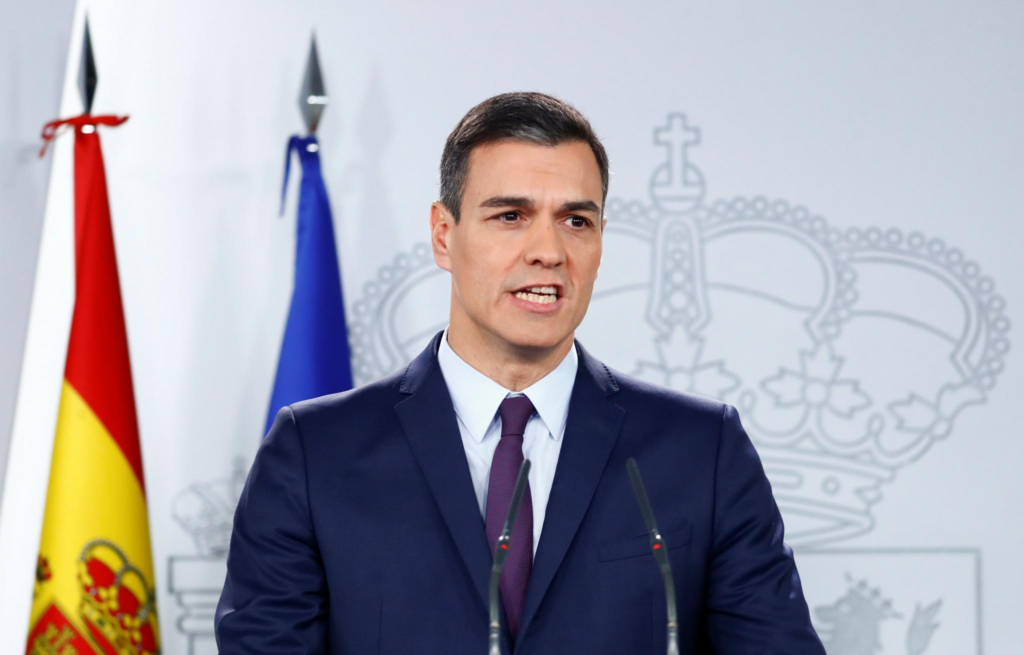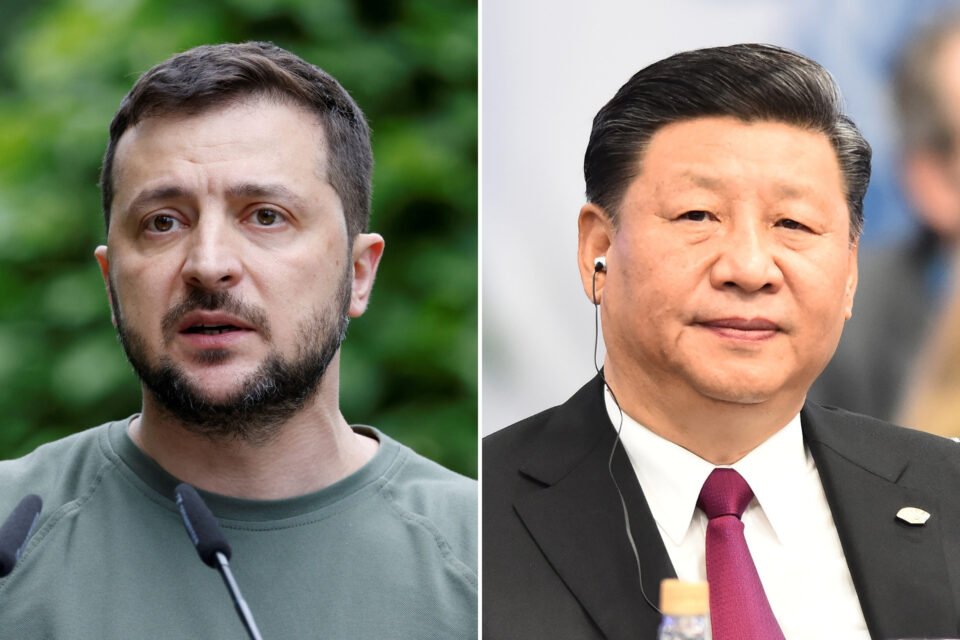The Spanish PM requests a meeting between Zelenskyy and Xi in China.
Pedro Sanchez, the prime minister, applauds some of China’s 12-point plan to end the conflict in the Ukraine and Russia.

To help put an end to Russia’s invasion, Spanish Prime Minister Pedro Sanchez has urged Chinese President Xi Jinping to speak with Ukrainian authorities and learn firsthand about Kyiv’s peace plan.
At a news conference held on Friday in Beijing, Sanchez said that he had informed Xi—who had just returned from a March 20–21 trip to Moscow—that Spain backed the ideas put forth by Ukrainian President Volodymyr Zelenskyy. They include a demand to return Ukraine’s borders to how they were prior to Russia’s takeover of Crimea in 2014.
The United Nations charter and its tenets, which [Russian President Vladimir] Putin’s invasion violated, are precisely matched with this strategy, according to him, and it provides the groundwork for a lasting peace in Ukraine.
Sanchez stated, “I expressed our alarm over the illegal invasion of Ukraine,” and he urged Xi to speak with President Zelenskyy to learn more about Kyiv’s peace proposal.
China presented its own 12-point plan for a political resolution to the conflict in Ukraine last month, which included a total ceasefire.
Some EU officials in China, however, expressed concern over the paper’s failure to identify Russia as the conflict’s aggressor. Sanchez applauded China’s position paper on Thursday for two things: “its comprehensive and unambiguous rejection of not only the use but even the threat to use nuclear weapons” and “respect for territorial integrity.”
When asked what Xi had said, Sanchez opted not to comment. According to Russia, Ukraine must accept the loss of Crimea and four other provinces in the east and south of the nation.
Xi called for an end to the “Cold War mentality” and the pressure of “severe” sanctions, though he did not specifically mention Russia, according to a readout of the meeting by Chinese state broadcaster CCTV. According to CCTV, Xi stated, “We hope that all parties involved would construct a balanced, effective, and durable European security architecture through communication and consultation.”
Later on Friday, Josep Borrell, the senior diplomat for the European Union, stated that China cannot serve as a mediator in the conflict in Ukraine because of its strong ties to Russia, but it may act as a facilitator to negotiate a peace agreement with Moscow.
Borrell stated to a panel in Madrid, Spain, “China does not distinguish between aggressor and victim of violence.” Although China does not demand that Russian forces leave Ukraine, he continued, echoing Sanchez, “China should utilize its influence over Russia to pressure for peace in Ukraine.”
Spain is a steadfast supporter of Ukraine and a NATO member whose diplomatic and security policies are closely aligned with those of the United States. It takes up the rotating presidency of the Council of the European Union, which brings together the 27 national governments of the union, in July.
Moreover, Sanchez charged that Putin was attempting to “weaken” the “multilateral initiative for peace and welfare” of the EU.

The EU Commission President Ursula von der Leyen described the relationship between the EU and China as “complicated,” and the Spanish prime minister said he agreed with her assessment. He emphasized the importance of reciprocity and a level playing field between them.
Because it contrasts with indications of close personal ties between Xi and Putin, such as when both leaders addressed one another as “dear friend” during their most recent meeting, EU leaders have expressed concern over the lack of any official engagement between Xi and Zelenskyy since the start of the war.
Von der Leyen will travel to Beijing next week with French President Emmanuel Macron after stating in a speech on Thursday that China was becoming “more oppressive at home and more forceful abroad.”




